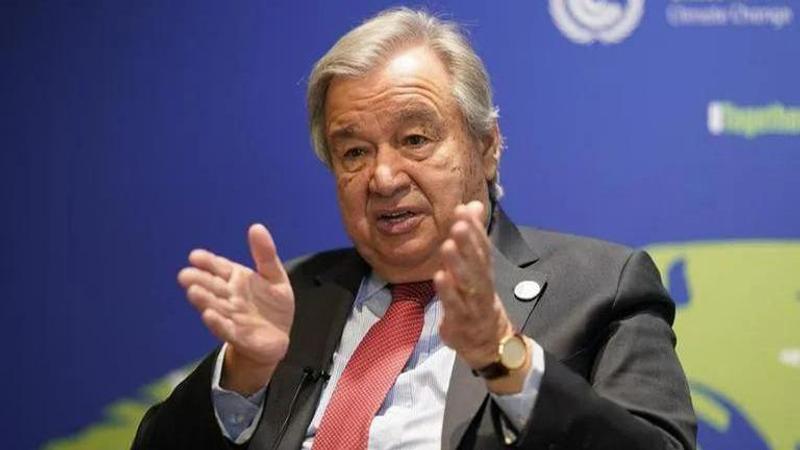Published 06:15 IST, June 2nd 2022
UN calls for decisive action to ensure steady flow of food, energy amid Russia-Ukraine war
Guterres stated on June 1 that there had been some "progress" in finding a way to mitigate the impact of Russia's invasion of Ukraine on global food supplies.

UN Secretary-General Antonio Guterres stated on June 1 that the food crisis by the Russia-Ukraine war could see some easing, adding that any breakthrough was not imminent and could still be some time off. It is to mention that the war has effectively bottlenecked grain and fertilizer's supplies from Ukraine. While Mosow is a major global source of fertilizer, both Russia and Ukraine account for a third of global wheat supplies.
The UN Chief called for "quick and decisive action to ensure a steady flow of food and energy," including "lifting export restrictions, allocating surpluses and reserves to vulnerable populations and addressing food price increases to calm market volatility."
"I think there is progress, but we are not there yet. These are complex things and the fact that everything is interlinked, makes the negotiation particularly complex," he said during a news conference in Stockholm with Swedish Prime Minister Magdalena Andersson.
Guterres, who visited Moscow and Kyiv earlier this year, is attempting to arrange a "package deal" that would allow both Ukrainian and Russian food and fertiliser exports to restart as part of the UN's efforts to resolve the issue. It is pertinent to mention here that Ukraine is a major wheat, corn, and sunflower oil exporter. Meanwhile, Russia is a big fertiliser exporter.
He added, "As I said to the security council, I'm hopeful, but there is still a ways to go and we are totally committed to make things happen."
A Russian embargo has prevented Ukrainian ports from sending commodities out to sea. Meanwhile, Russian ships are reportedly having problems transferring food due to restrictions. Guterres hopes that both Ukrainian and Russian exports will resume in order to avert a food crisis in the poor world, particularly in several African countries.
The Black Sea blockade
Three months into the Russia-Ukraine war, the Kremlin's blockade of Ukraine's Black Sea ports remains in place, raising concerns about a worldwide food crisis. Ukraine is the world's fifth largest wheat exporter, and earlier this month, UN World Food Programme Executive Director David Beasley warned that if Ukrainian ports are closed, millions of people may perish around the world. Notably, the Black Sea is bounded to the north by Ukraine, to the east by Russia and Georgia, to the south by Turkey, and to the west by Bulgaria and Romania.
While Ukraine has achieved some major maritime victories since Russia launched its war on Ukraine in February 2022, the Kremlin remains more dominant in the northern Black Sea and has shut Ukrainian ports. Further, according to several media reports, Russian Deputy Foreign Minister Andrei Rudenko stated earlier that Moscow was willing to offer a corridor for ships bringing food – but only in exchange for the easing of some Western sanctions.
Image: AP
Updated 06:15 IST, June 2nd 2022




